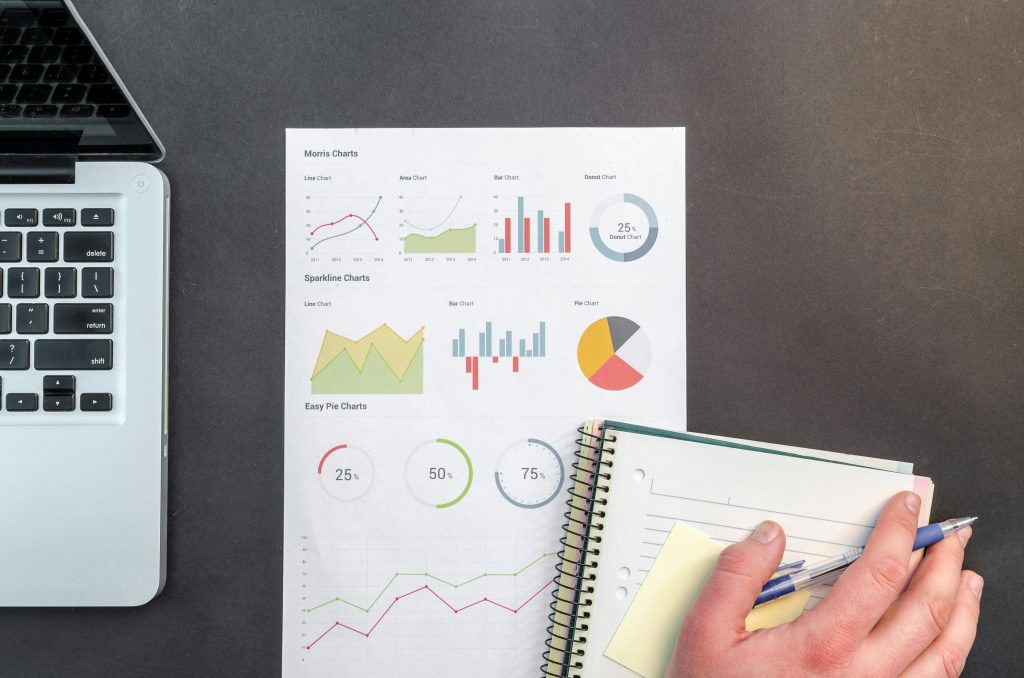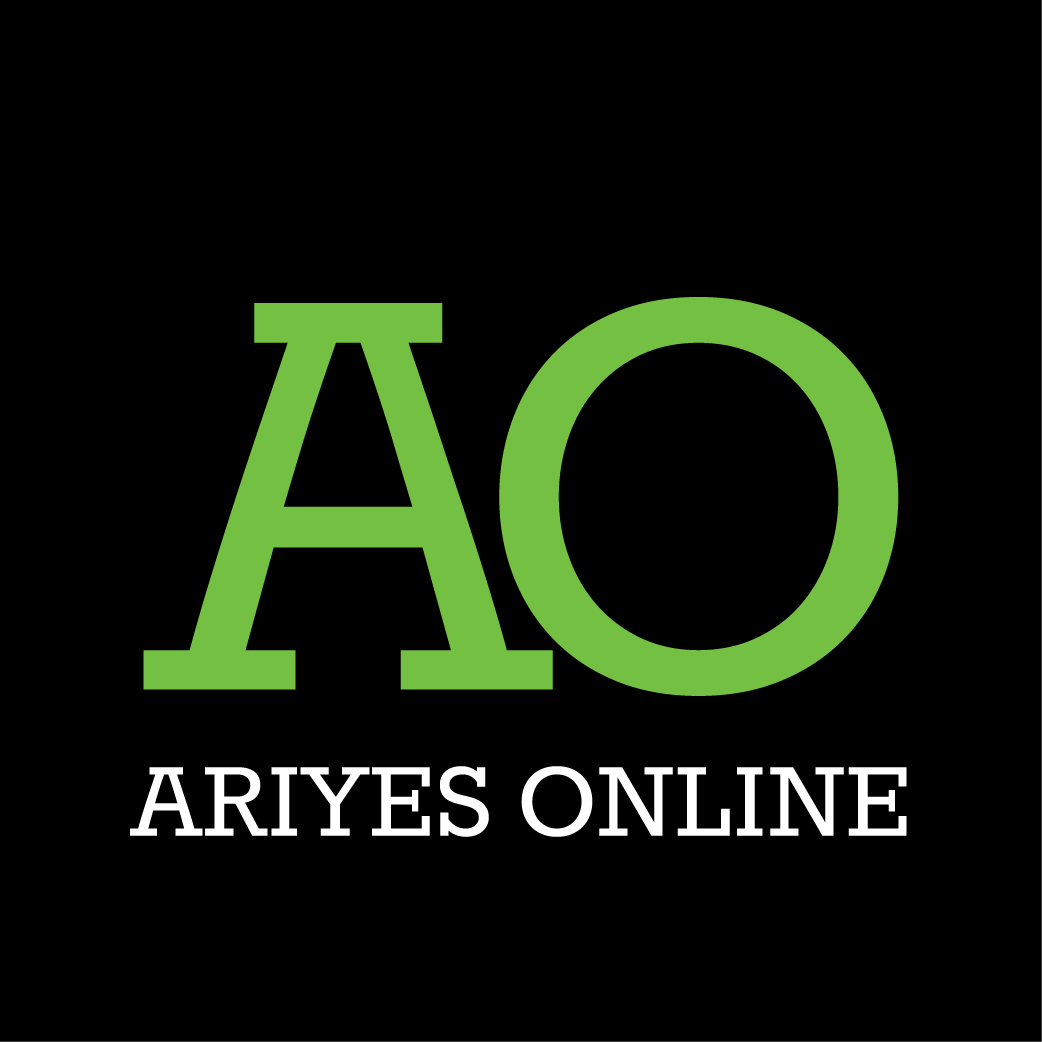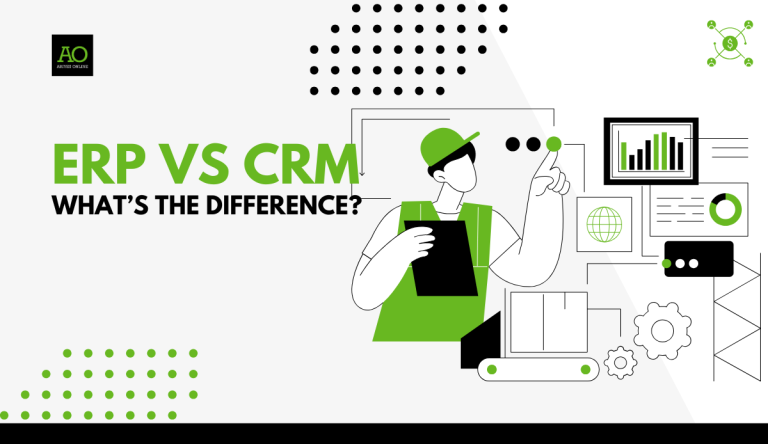Let’s be honest — business software is full of acronyms that sound like they were invented by robots for other robots. ERP, CRM… they both promise to “transform your business” and “unlock growth,” but what do they actually do? And more importantly, which one do you need?
Enterprise Resource Planning (ERP) and Customer Relationship Management (CRM) systems are both designed to improve business performance. But while they share some overlapping features, their primary functions, end users, and goals differ significantly. This post will break down what ERP and CRM systems really are, how they’re different, and how to figure out which one (or both) makes sense for your business.
What is ERP?

ERP stands for Enterprise Resource Planning, which sounds fancy but basically means it’s a system that helps you run your business behind the scenes.
At its core, an ERP system integrates functions across finance, operations, supply chain, procurement, human resources, and often manufacturing. The goal is to centralize data and streamline workflows so that every part of your organization is operating from the same playbook. Instead of siloed departments manually updating disconnected spreadsheets, ERP systems offer a unified platform that provides real-time insights and automation.
For example: let’s say someone places an order. An ERP system can automatically update your inventory, alert your warehouse team, send out an invoice, and even update your financial reports — all without someone needing to manually poke five different systems. It’s like mission control for your business operations.
ERP is usually most useful for mid-size and larger companies — especially ones dealing with complex logistics, lots of products, or multiple departments that all need to talk to each other. If your business feels like it’s held together with duct tape and spreadsheets, ERP is probably worth a look.
What is CRM?
CRM stands for Customer Relationship Management, and it’s all about how you connect with your customers from the first point of contact to long after the sale.
While ERP takes care of your operations, CRM focuses on your sales, marketing, and customer service. It helps you track leads, manage customer interactions, organize your pipeline, and deliver a consistent, personalized experience across the board.
If ERP is about running your business, CRM is about growing it.
Let’s say a potential customer fills out a form on your website. With a CRM, that lead is automatically captured, assigned to a salesperson, and tracked through the sales process. Every phone call, email, and follow-up is logged, giving your team full visibility into each relationship.
But CRM isn’t just about new customers. It also helps you take better care of existing ones by managing support tickets, tracking order history, and identifying opportunities for upselling or repeat business.
If building strong, long-term relationships is part of your strategy (and it should be), CRM is essential.
ERP vs CRM: Understanding the Key Differences
The difference comes down to focus. ERP is built to improve internal processes. CRM is designed to improve external relationships.
ERP helps you control what’s happening inside your business like managing resources, tracking operations, and ensuring everything runs efficiently.
CRM helps you connect with the outside world such as managing your sales pipeline, engaging customers, and making sure no opportunity slips through the cracks.
They serve different teams too. ERP systems typically serve three organizational departments: finance, operations and inventory management as well as human resources. CRM functions as a preferred tool for all sales representatives and marketing professionals and staff from customer service departments.
ERP system implementation requires higher complexity and elevated costs because organizations need complete integration between departments. Deploying CRM systems is generally quicker and its scalability becomes feasible due to cloud-based models which enable immediate customization for expansion.
When Should You Use ERP, CRM, or Both?
The choice between ERP and CRM isn’t always binary. It depends on the nature of your business and the challenges you’re trying to solve.
If your business is experiencing internal chaos like disconnected departments, inefficient processes, or unreliable data then an ERP is likely the solution you need. Having an ERP system will create structure through its tools as it provides visibility into operational activities and maintains operational control systems. Businesses with complex logistics and manufacturing companies or wholesalers start their journey with ERP platforms because of its effective coordination.
On the other hand, if your company is struggling to manage its pipeline, losing track of leads, or failing to retain customers, then a CRM system will offer the tools you need to improve engagement and drive revenue. Startups and growing service-based businesses often prioritize CRM early on because customer acquisition is their main focus.
But in many cases, businesses need both. Let’s say, your sales team closes a big deal using the CRM, but your operations team has no idea how to fulfill the order because inventory data lives in a different system. This kind of disconnect slows you down and frustrates customers.
So when you have CRM and ERP systems that work together, you gain full visibility from customer interaction to product delivery, which is the ideal scenario for scalable growth.
Can ERP and CRM Systems Work Together?
Yes, and in many cases, they work best when they’re connected.
When ERP and CRM systems are connected, your business benefits from full visibility across both operations and customer engagement. Sales teams know what’s in stock before making a promise. Finance sees what’s in the pipeline before planning cash flow. Customer service can view order history without asking someone from accounting. It’s about working smarter, not harder.
That’s exactly the strength of an all-in-one platform like Odoo.
Odoo brings ERP and CRM together under one system, with everything fully integrated from the start — no need to patch together multiple tools or worry about syncing data between systems. When a salesperson closes a deal in the CRM, the information flows automatically into invoicing, inventory, delivery, and beyond. Every team stays in sync, and your customers enjoy a smoother, more responsive experience.
Whether you’re managing a small operation or scaling fast, having one platform that does it all means fewer headaches, more time saved, and better decisions made with real-time information.
How to Choose the Right System for Your Business
Before you commit to anything, take time to reflect on what your business really needs right now and where it’s heading.
- What are the pain points slowing you down?
- Are you spending too much time on manual tasks or correcting errors?
- Do you have full visibility into your operations and customers?
- Are your teams working in silos, or sharing information freely?
Talk to the people using your current tools and listen to what’s slowing them down. This feedback will help you understand where a new system could add the most value.
Also, consider scalability. Look for systems that can grow with your business, integrate with other tools you use, and offer the support your team needs for a smooth transition.
Final Thoughts
ERP and CRM are both powerful tools that, when used right, can transform how your business runs and how it grows. ERP helps you get control over your operations. CRM helps you connect more effectively with your customers. When combined, they give you a single, streamlined way to manage everything from inventory and invoicing to leads and loyalty.
The best part? You don’t need to manage two separate systems. The Odoo system hosts both ERP and CRM functionalities within a single flexible modular integrated platform that will adapt to your business requirements.
Let’s talk and we’ll help you figure out the best setup for your goals — no pressure, just practical advice tailored to your needs.



